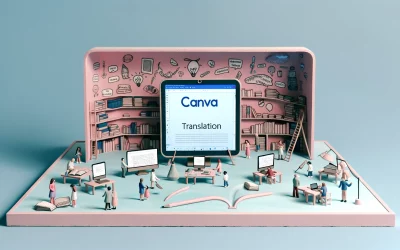ChatGPT is an artificial intelligence tool that has been making waves in the marketing industry. Its ability to generate human-like responses to prompts has revolutionized the way businesses approach customer engagement. However, coming up with the right prompts to get the most out of ChatGPT can be a challenge for many marketers.
That’s where this article comes in. In this guide, we will explore the best ChatGPT prompts for marketing businesses. From email marketing to social media and beyond, we will cover a wide range of prompts that will help you get the most out of this powerful tool. Whether you’re a seasoned marketer or just starting out, these prompts will help you take your marketing efforts to the next level.
So, if you’re looking to leverage ChatGPT to its full potential, read on to discover the best prompts to use for your business. With these prompts in your arsenal, you’ll be able to create engaging content, connect with your audience, and drive more sales than ever before.
Understanding ChatGPT for Marketing
Basics of ChatGPT
ChatGPT is an AI-powered language model that can generate human-like responses to text prompts. It uses machine learning algorithms to analyze large amounts of text data and learn how to mimic human language patterns. ChatGPT is trained on a wide range of topics and can generate responses that are relevant and informative.
For marketers, ChatGPT can be a powerful tool for creating engaging and personalized content. By entering prompts into the system, marketers can generate responses that are tailored to their target audience. ChatGPT can also be used to automate customer service responses, saving time and resources for businesses.
Benefits in Marketing
There are several benefits to using ChatGPT in marketing. One of the main advantages is that it can help businesses create more engaging and personalized content. By using prompts that are specific to their target audience, marketers can generate responses that are more likely to resonate with their customers.
ChatGPT can also be used to automate customer service responses, which can save businesses time and resources. By using ChatGPT to generate responses to common customer queries, businesses can free up their customer service team to focus on more complex issues.
Another benefit of ChatGPT is that it can help businesses stay up-to-date with the latest marketing trends. By generating responses to prompts related to emerging technologies, automation, personalization, and data-driven decision-making, businesses can stay ahead of the curve and remain competitive in their industry.
Crafting Engaging Prompts
Crafting engaging prompts is crucial for any marketing campaign using ChatGPT. Creating conversational prompts that sound natural and authentic is key to making customers feel heard and valued.
Creating Conversational Prompts
To create conversational prompts, businesses should avoid using overly formal language or jargon. Instead, they should use language that is easy to understand and approachable. By using a conversational tone, businesses can create a more personal connection with their customers, which can lead to increased engagement and brand loyalty.
Prompt Ideas for Brand Awareness
For businesses looking to increase brand awareness, prompts that encourage customers to share their experiences with the brand can be effective. For example, businesses can ask customers to share their favorite product or service from the brand on social media using a specific hashtag. This not only increases brand awareness, but also creates user-generated content that can be used in future marketing campaigns.
Generating Leads with Prompts
Prompts can also be used to generate leads for businesses. For example, businesses can ask customers to sign up for a newsletter or enter a giveaway in exchange for their contact information. This allows businesses to build a list of potential customers that they can market to in the future.
Integrating ChatGPT with Marketing Strategies
ChatGPT is an AI-powered tool that can help businesses enhance their marketing strategies. By integrating ChatGPT with marketing strategies, businesses can save time and resources while creating more engaging content. Here are some ways businesses can integrate ChatGPT with their marketing strategies:
Email Marketing Enhancement
ChatGPT can help businesses create more personalized and engaging emails for their email marketing campaigns. By using ChatGPT to generate email subject lines and content, businesses can increase open rates and click-through rates. ChatGPT can also help businesses segment their email lists based on customer behavior and preferences, making it easier to send targeted emails.
Social Media Engagement
ChatGPT can assist businesses in creating social media posts that are more engaging and relevant to their target audience. By generating social media captions and hashtags, businesses can increase their reach and engagement on social media platforms. ChatGPT can also help businesses identify trending topics and create content around them, which can increase their visibility on social media.
Content Marketing Support
ChatGPT can help businesses create high-quality content that is optimized for search engines. By generating blog post titles and outlines, businesses can save time and resources while creating content that is relevant and engaging to their target audience. ChatGPT can also assist businesses in creating video scripts and podcast outlines, which can help them reach a wider audience.
Analyzing ChatGPT Prompt Performance
ChatGPT is an AI language model that can generate human-like text. It is a powerful tool for marketers, as it can help them create engaging content, improve customer interactions, and generate leads. However, to get the most out of ChatGPT, marketers need to analyze its performance and optimize their prompts accordingly.
Tracking Engagement Metrics
To track the performance of ChatGPT prompts, marketers should use engagement metrics such as click-through rates, conversion rates, and bounce rates. These metrics can help them understand how well their prompts are performing and identify areas for improvement.
For example, if a marketer creates a ChatGPT prompt for a social media post and it receives a high click-through rate, they can conclude that the prompt is engaging and resonates with their audience. On the other hand, if the prompt receives a low conversion rate, the marketer may need to optimize the prompt or adjust their targeting.
Using Data for Prompt Optimization
Once marketers have tracked engagement metrics, they can use the data to optimize their ChatGPT prompts. For example, they can analyze the language and tone of their prompts to see what resonates with their audience. They can also experiment with different prompt lengths, formats, and topics to see what works best.
Marketers can also use data to personalize their prompts. For example, if they have data on a customer’s purchase history or browsing behavior, they can create ChatGPT prompts that are tailored to their interests and needs. This can help increase engagement and conversions.
Overcoming Common Challenges
Marketing businesses face a number of challenges when trying to create compelling content that resonates with their target audience. ChatGPT can be a useful tool in overcoming these challenges. Here are three common challenges and how ChatGPT can help:
Staying Relevant
One of the biggest challenges in marketing is staying relevant. Trends change quickly, and businesses need to be able to keep up. With ChatGPT, businesses can generate prompts that are tailored to their industry and target audience. By using the latest industry terms and trends, businesses can ensure that their content is up-to-date and relevant.
Avoiding Repetitive Content
Another challenge in marketing is avoiding repetitive content. Businesses need to create fresh, unique content to keep their audience engaged. ChatGPT can help by generating prompts that are different from what the business has already produced. By using a variety of prompts, businesses can keep their content fresh and interesting.
Ensuring Brand Consistency
Finally, ChatGPT can help businesses ensure brand consistency. By generating prompts that are in line with the business’s brand voice and values, businesses can ensure that their content is consistent across all channels. This helps to build trust with the audience and establish the business as a reliable source of information.
Advanced ChatGPT Prompt Techniques
Personalization Tactics
One of the most effective ways to engage customers is through personalized content. With ChatGPT prompts, businesses can create personalized content at scale. By using customer data, businesses can generate prompts that are tailored to individual preferences and interests. For example, a prompt could be generated that asks customers to provide their favorite color, and then generates content that incorporates that color into the marketing message.
Interactive Content Creation
Interactive content is a great way to increase engagement and drive conversions. With ChatGPT prompts, businesses can easily create interactive content such as quizzes, surveys, and polls. By asking customers to provide input, businesses can create content that is more engaging and relevant. For example, a prompt could be generated that asks customers to provide their opinion on a particular topic, and then generates a poll based on their response.
A/B Testing with ChatGPT Prompts
A/B testing is a powerful technique for optimizing marketing campaigns. With ChatGPT prompts, businesses can easily create multiple versions of a prompt and test them against each other. By analyzing the results, businesses can determine which version of the prompt is most effective. For example, a prompt could be generated that asks customers to provide feedback on a product, and then two different versions of the prompt could be created and tested to see which one generates the most responses.
Future Trends in ChatGPT for Marketing
AI Advancements
As AI technology continues to advance, ChatGPT will become more sophisticated in its ability to generate responses and prompts. This means that marketers will be able to rely on ChatGPT for more complex tasks, such as creating entire marketing campaigns or providing personalized recommendations to customers. With the help of AI, businesses will be able to streamline their marketing efforts and make more data-driven decisions.
Predictive Analytics
As ChatGPT becomes more advanced, it will also be able to provide predictive analytics that can help businesses anticipate customer needs and preferences. By analyzing customer data, ChatGPT will be able to generate prompts that are tailored to each individual customer, making marketing efforts more effective and efficient. This will help businesses stay ahead of the competition and provide better customer experiences.
Ethical Considerations
As ChatGPT becomes more ubiquitous in marketing, there will be increasing ethical considerations to take into account. For example, businesses will need to ensure that they are not using ChatGPT to manipulate customers or engage in unethical marketing practices. Additionally, there will be concerns about data privacy and how customer data is being used to generate prompts. As ChatGPT becomes more advanced, it will be important for businesses to stay vigilant and ensure that they are using the technology ethically and responsibly.




